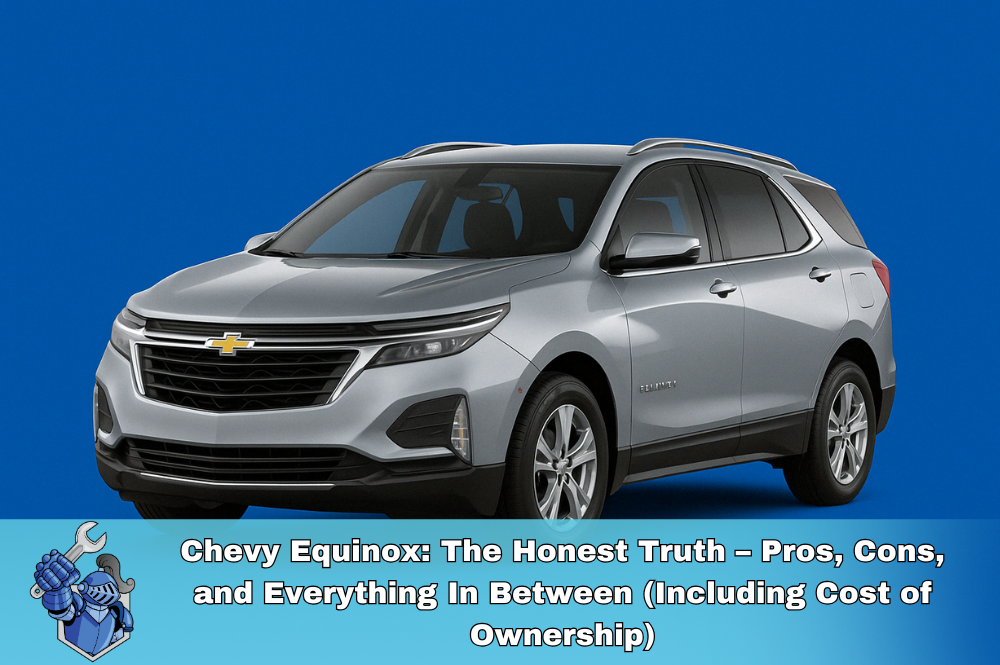Bitcoin offers strong cryptographic security, especially when stored in a hardware wallet. However, it's vulnerable to hacking or user error. Cash is simpler but can be stolen or destroyed. Each carries its own risks.
In today’s shifting financial world, the conversation around Bitcoin vs. cash is more relevant than ever. Whether you're a crypto enthusiast, a cautious saver, or just curious about the future of money, this deep dive will help you understand the differences, advantages, and trade-offs between cryptocurrency and traditional fiat.
As the line between digital currency and cash becomes increasingly blurred, this guide explores their roles in everyday purchases, privacy, international travel, security, inflation protection, and more.
Bitcoin vs. Cash: Understanding the Basics
💰 What Is Bitcoin?
Bitcoin is a decentralized digital currency built on blockchain technology. Created in 2009, it's not controlled by any central authority. Its supply is limited to 21 million coins, making it deflationary by nature and appealing as a store of value.
💵 What Is Cash?
Cash, or fiat currency, is government-issued money like the U.S. dollar. It’s controlled by central banks, can be printed at will, and is accepted virtually everywhere in physical form.
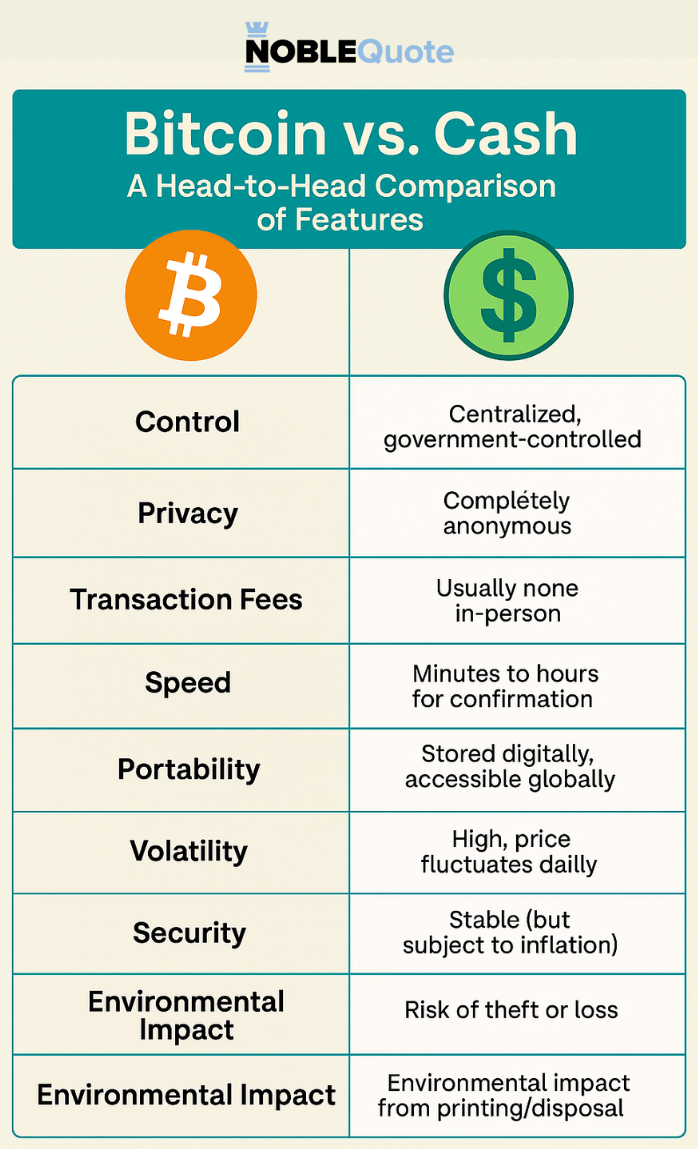
Feature Comparison: Bitcoin vs. Cash
| Feature | Bitcoin | Cash |
|---|---|---|
| Control | Decentralized, peer-to-peer | Centralized, government-issued |
| Privacy | Pseudonymous, recorded on public ledger | Anonymous and untraceable |
| Fees | Network-dependent; can fluctuate | Usually none for in-person transactions |
| Speed | Minutes to hours depending on congestion | Instant |
| Portability | Access via smartphone or hardware wallet | Requires physical handling |
| Volatility | Highly volatile in short term | Relatively stable (but inflation-prone) |
| Security | Cryptographically secure, but susceptible to hacks | Subject to theft or loss |
| Divisibility | Divisible down to 0.00000001 BTC | Limited to denominations |
| Accessibility | Requires internet and digital literacy | Universally accessible (physical presence required) |
| Environmental Impact | High (due to mining) | Moderate (printing and transport) |
Everyday Usage: Bitcoin vs. Cash for Daily Transactions
Bitcoin is gaining ground in e-commerce, especially for cross-border payments, while cash remains the go-to for local, fast transactions.
- Bitcoin is ideal for digital purchases, high-value transfers, and online privacy.
- Cash still dominates for quick in-store payments and small business exchanges.
🔎 Can Bitcoin replace cash for everyday use? Not entirely yet—adoption is still growing.
Anonymity & Transparency: Privacy of Bitcoin vs. Cash Transactions
- Cash: Completely anonymous. No record unless you’re being watched.
- Bitcoin: Pseudonymous but transparent. All transactions are stored on a public ledger, visible to anyone with blockchain access.
Security: Storing Bitcoin vs. Storing Cash
- Bitcoin can be stored in secure wallets (digital or hardware) but comes with risks like hacking or lost keys.
- Cash can be hidden in safes, but risks include fire, theft, and inflation.

Travel and Global Use: Bitcoin vs. Cash for International Needs
- Bitcoin eliminates the need for currency exchange. You can carry your wallet on your phone or hardware key.
- Cash is still needed in regions with limited internet or tech access.
Inflation Protection and Long-Term Value
- Bitcoin’s limited supply makes it a hedge against inflation.
- Cash loses purchasing power over time as more is printed.
Laws, Taxes, and Regulation: USA and New Jersey Overview
In the U.S., Bitcoin is treated as property for tax purposes. Capital gains tax may apply when you sell or use it.
New Jersey has yet to impose crypto-specific legislation, but users must follow federal IRS guidelines.
🔗 Source: IRS Virtual Currency Tax Guide
Small Business Perspective
Many small businesses are warming up to Bitcoin due to lower transaction fees and protection from chargebacks. However, volatility and tech setup may deter others.
✅ Conclusion: Bitcoin or Cash—Which One Fits You Best?
There’s no clear winner. Choose Bitcoin if you value decentralization, borderless transactions, and digital innovation. Stick with cash if you need speed, simplicity, and anonymity.
🔗 Ready to protect your assets—crypto or cash? Visit our Learning Center for insights and resources.
Bitcoin vs. Cash FAQ: Honest Answers to What People Are Asking Right Now
Is Bitcoin safer than cash?
Can Bitcoin replace cash in the future?
It’s possible in the long term, especially for online and international transactions. But infrastructure, regulation, and adoption need to grow before Bitcoin can fully replace cash.
Why is Bitcoin more volatile than cash?
Bitcoin is influenced by global speculation, supply limits, and market sentiment. Cash is controlled by central banks to remain stable, but it’s subject to inflation over time.
Are Bitcoin transactions anonymous like cash?
No. Bitcoin is pseudonymous—your name isn’t attached, but every transaction is visible on the blockchain. Cash transactions are completely private and untraceable.
Is Bitcoin a good investment compared to holding cash?
Bitcoin may offer long-term gains, especially in inflationary environments, but it’s risky. Holding cash is safer but loses value over time. A balanced approach may be best.
What are the tax rules for Bitcoin vs. cash?
Bitcoin is taxed as property in the U.S., meaning capital gains taxes apply when you sell or use it. Cash is taxed as income when earned or deposited, but spending cash isn’t taxed.
What’s the environmental impact of Bitcoin compared to printing cash?
Bitcoin mining consumes significant electricity, especially in non-renewable regions. Cash printing and transport also use resources, but at a lower scale. Eco-friendly Bitcoin mining is growing.
Can I use Bitcoin to buy things like I do with cash?
Yes, but only where it's accepted. Online merchants and some physical stores accept Bitcoin, but adoption is still limited compared to universal cash usage.
Which is better for international travel: Bitcoin or cash?
Bitcoin is better for avoiding exchange fees and carrying large sums securely. Cash is better in areas with low internet access or no crypto adoption.
What are the transaction fees for Bitcoin vs. cash?
Bitcoin fees vary depending on network congestion and can range from a few cents to several dollars. Cash transactions are typically fee-free unless you're withdrawing from an ATM.
Suggestions for you
Read MoreLet’s work together
Every week we showcase three charitable organizations that our donations are sent to. Our clients are able to choose which of these three will receive their gift when they add coverage to their vehicle...

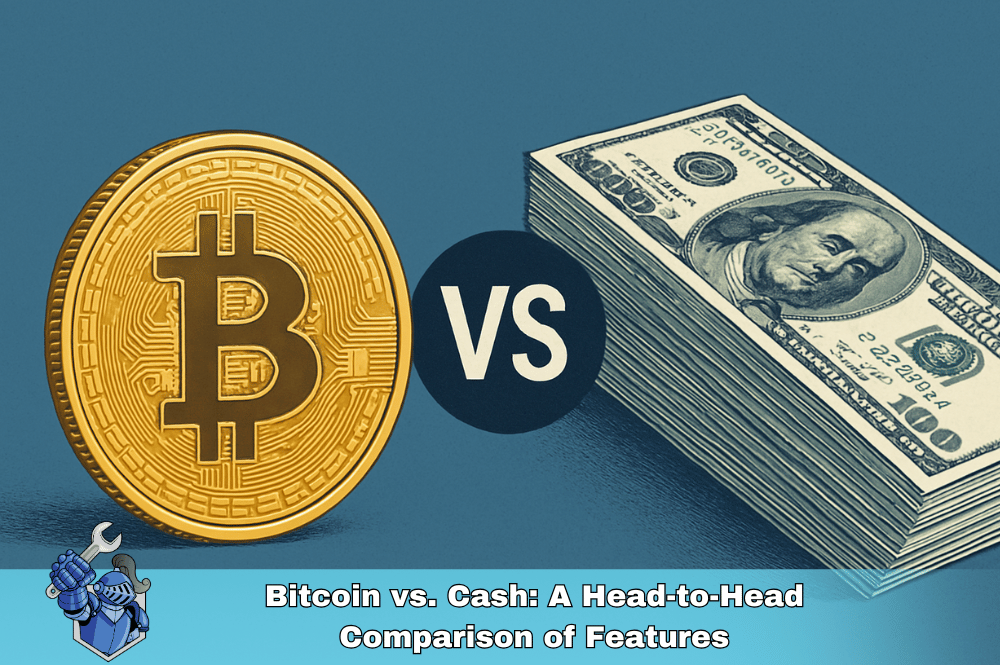
 Beyond F1: Exploring the World's Most Extreme Racing Series
Beyond F1: Exploring the World's Most Extreme Racing Series The Greatest NASCAR Rivalries of All Time: On-Track Battles and Off-Track Drama
The Greatest NASCAR Rivalries of All Time: On-Track Battles and Off-Track Drama Chevy Suburban Repair Guide: Common Problems
Chevy Suburban Repair Guide: Common Problems Cupid's Got Horsepower: Rev Up Your Valentine's Day!
Cupid's Got Horsepower: Rev Up Your Valentine's Day! 10 Things You Didn't Know About James Bond’s Aston Martin DB5
10 Things You Didn't Know About James Bond’s Aston Martin DB5 Knight Rider vs. Back to the Future: A Battle of the 80s Icons
Knight Rider vs. Back to the Future: A Battle of the 80s Icons Cadillac Escalade: Mastering the Maintenance
Cadillac Escalade: Mastering the Maintenance Noble Quote vs. Omega Auto Care: Which Auto Warranty Is Right for You?
Noble Quote vs. Omega Auto Care: Which Auto Warranty Is Right for You? Charging Your Peace of Mind: Using a Credit Card to Buy a Car Warranty
Charging Your Peace of Mind: Using a Credit Card to Buy a Car Warranty Best Extended Warranty for Your Ford: Noble Quote or Ford Protect?
Best Extended Warranty for Your Ford: Noble Quote or Ford Protect? Extended Warranty vs. Self-Insuring: Which Is Right for You?
Extended Warranty vs. Self-Insuring: Which Is Right for You? Don’t Buy a Honda Warranty Before Reading This! Noble Quote vs. HondaCare
Don’t Buy a Honda Warranty Before Reading This! Noble Quote vs. HondaCare Mercedes-Benz G-Class Review: On and Off-Road Performance, Features, and Price
Mercedes-Benz G-Class Review: On and Off-Road Performance, Features, and Price Avoid Costly Repairs: Noble Quote vs. Ox Car Care Warranties
Avoid Costly Repairs: Noble Quote vs. Ox Car Care Warranties Affordable Protection: Noble Quote vs. Autopom Warranty Pricing
Affordable Protection: Noble Quote vs. Autopom Warranty Pricing CarMax MaxCare vs. Noble Quote: Extended Warranty Showdown
CarMax MaxCare vs. Noble Quote: Extended Warranty Showdown Top 5 Most Expensive Car Repairs Your Manufacturer Warranty WON'T Cover
Top 5 Most Expensive Car Repairs Your Manufacturer Warranty WON'T Cover From Referrals to Reviews: Finding the Perfect Repair Shop for You
From Referrals to Reviews: Finding the Perfect Repair Shop for You Speaking Car: How to Clearly Communicate with Your Mechanic
Speaking Car: How to Clearly Communicate with Your Mechanic Selling Your Soul for an Extended Car Warranty (And Why They Keep Calling)
Selling Your Soul for an Extended Car Warranty (And Why They Keep Calling) Why Is My Car Heater Blowing Cold Air?
Why Is My Car Heater Blowing Cold Air? Level Up Your EV Charging Knowledge: A Guide to Charger Types
Level Up Your EV Charging Knowledge: A Guide to Charger Types Bumper to Bumper Extended Warranty: What Does it Really Mean?
Bumper to Bumper Extended Warranty: What Does it Really Mean? Boost Your EV's Range: Tips and Tricks for Maximum Mileage
Boost Your EV's Range: Tips and Tricks for Maximum Mileage Is Cruise Control REALLY Saving You Fuel? The Truth Revealed
Is Cruise Control REALLY Saving You Fuel? The Truth Revealed What to Do When the Dealership Makes Warranty Cancellation a Hassle
What to Do When the Dealership Makes Warranty Cancellation a Hassle Why Can’t I Include My Warranty in My Car Financing? Answers to Your Top Questions
Why Can’t I Include My Warranty in My Car Financing? Answers to Your Top Questions Car Safety Technology: How Advanced Driver-Assistance Systems (ADAS) Are Changing the Game (and Your Insurance Rates)
Car Safety Technology: How Advanced Driver-Assistance Systems (ADAS) Are Changing the Game (and Your Insurance Rates) Skip the Dealership: The Rise of Online Car Buying
Skip the Dealership: The Rise of Online Car Buying Tesla Cybertruck: Overpriced or Over-the-Top Awesome?
Tesla Cybertruck: Overpriced or Over-the-Top Awesome? Maximize Your Tesla Warranty: Smart Strategies for Extended Coverage
Maximize Your Tesla Warranty: Smart Strategies for Extended Coverage 2015 Ford Explorer: Avoid Costly Repairs with the Right Extended Warranty
2015 Ford Explorer: Avoid Costly Repairs with the Right Extended Warranty 2008 Toyota Camry: Common Repairs and Why Extended Coverage is a Smart Investment
2008 Toyota Camry: Common Repairs and Why Extended Coverage is a Smart Investment Electric Vehicles 101: What You Need to Know Before Making the Switch
Electric Vehicles 101: What You Need to Know Before Making the Switch 2016 Jeep Wrangler Extended Warranty: Coverage & Options
2016 Jeep Wrangler Extended Warranty: Coverage & Options Save on Car Repairs: NobleQuote vs. Toco Extended Warranty Review
Save on Car Repairs: NobleQuote vs. Toco Extended Warranty Review Honda A/C Compressor Failure: Causes, Symptoms & Repair Costs
Honda A/C Compressor Failure: Causes, Symptoms & Repair Costs 2015 Nissan Altima Warranty Expired? Get Extended Coverage Today!
2015 Nissan Altima Warranty Expired? Get Extended Coverage Today! Ford Power Steering Repair: Problems & Solutions
Ford Power Steering Repair: Problems & Solutions Car Scratches Driving You Crazy? 10 Steps to Fix Them Yourself
Car Scratches Driving You Crazy? 10 Steps to Fix Them Yourself Why Your Headlights Are Turning Yellow (And How to Prevent It)
Why Your Headlights Are Turning Yellow (And How to Prevent It) That Annoying Hemi Tick: Why It Happens & How to Stop It
That Annoying Hemi Tick: Why It Happens & How to Stop It Ford F-150: This Ain't Your Grandpa's Pickup!
Ford F-150: This Ain't Your Grandpa's Pickup! Zombie Apocalypse Survival Tip #1: Get an Extended Warranty (Brains Not Included)
Zombie Apocalypse Survival Tip #1: Get an Extended Warranty (Brains Not Included) 'Tis the Season to Be Jolly... and Protected: Why an Extended Warranty is the Gift That Keeps on Giving
'Tis the Season to Be Jolly... and Protected: Why an Extended Warranty is the Gift That Keeps on Giving The Car Repair Lottery: Are You Feeling Lucky?
The Car Repair Lottery: Are You Feeling Lucky? Extended Warranty Secrets: Unlocking Surprising Perks You Didn’t Know Existed!
Extended Warranty Secrets: Unlocking Surprising Perks You Didn’t Know Existed! Car Trouble? Your Insurance Might NOT Cover This!
Car Trouble? Your Insurance Might NOT Cover This! Nissan Frontier: Conquer Any Terrain in Style and Comfort
Nissan Frontier: Conquer Any Terrain in Style and Comfort Is Your Car a Ticking Time Bomb? The Unexpected Costs of Car Ownership
Is Your Car a Ticking Time Bomb? The Unexpected Costs of Car Ownership Off-Roading vs. Overlanding: What’s the Difference?
Off-Roading vs. Overlanding: What’s the Difference? Should You Buy a Truck? The Ultimate Pros and Cons List
Should You Buy a Truck? The Ultimate Pros and Cons List 7 Reasons Why the Chevrolet Chevelle Was More Than Just a Pretty Face
7 Reasons Why the Chevrolet Chevelle Was More Than Just a Pretty Face Ford Bronco: A Legend Reborn – Explore its Wild History & Modern Muscle
Ford Bronco: A Legend Reborn – Explore its Wild History & Modern Muscle Hope for the Warriors: Standing Strong for Our Veterans and Military Families
Hope for the Warriors: Standing Strong for Our Veterans and Military Families Shifting Gears: A Deep Dive into Extended Warranties for Automatic and Manual Transmissions
Shifting Gears: A Deep Dive into Extended Warranties for Automatic and Manual Transmissions Looking for the Perfect Gift for a Car Enthusiast? Try These 10 Puzzles
Looking for the Perfect Gift for a Car Enthusiast? Try These 10 Puzzles What is an ASE Certified Mechanic? (And Why Should You Care)
What is an ASE Certified Mechanic? (And Why Should You Care) Ford Mustang: A Guide to Popular Models & Years (1964-Present)
Ford Mustang: A Guide to Popular Models & Years (1964-Present) Is the Ford Explorer Reliable? What Owners Need to Know
Is the Ford Explorer Reliable? What Owners Need to Know Rules of the Road: Your Ultimate Guide to Safe Driving
Rules of the Road: Your Ultimate Guide to Safe Driving Exhaust Problems? Mufflers, Catalytic Converters, & Replacement Solutions
Exhaust Problems? Mufflers, Catalytic Converters, & Replacement Solutions The Ultimate New Driver's Guide: Everything You Need to Know to Hit the Road with Confidence
The Ultimate New Driver's Guide: Everything You Need to Know to Hit the Road with Confidence Revving Up the Excitement: Unveiling the Magic of Disney Pixar's 'Cars'
Revving Up the Excitement: Unveiling the Magic of Disney Pixar's 'Cars' 2024 BMW 3 Series Review: Is it Still the Ultimate Driving Machine?
2024 BMW 3 Series Review: Is it Still the Ultimate Driving Machine?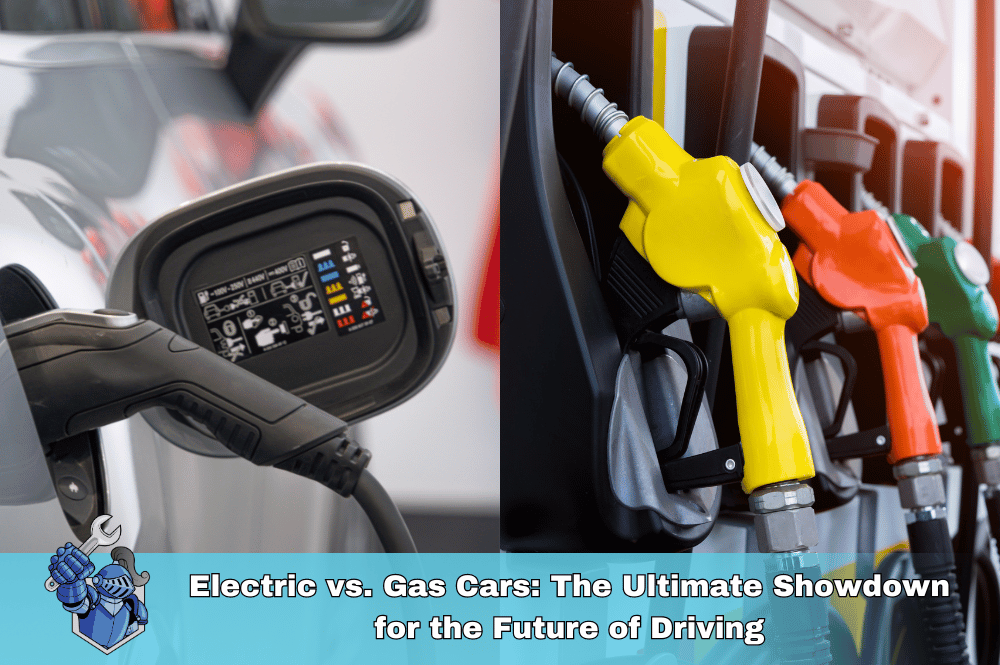 Electric vs. Gas Cars: The Ultimate Showdown for the Future of Driving
Electric vs. Gas Cars: The Ultimate Showdown for the Future of Driving Spotting and Stopping the Drip: Your Comprehensive Guide to Automotive Oil Leaks
Spotting and Stopping the Drip: Your Comprehensive Guide to Automotive Oil Leaks How Many Miles Can an Engine Really Last? The Definitive Guide
How Many Miles Can an Engine Really Last? The Definitive Guide Dodge Extended Warranty: Is It Worth the Cost? A Comprehensive Guide
Dodge Extended Warranty: Is It Worth the Cost? A Comprehensive Guide Dealer vs. Local Mechanic: Where Should You Take Your Car for Repairs?
Dealer vs. Local Mechanic: Where Should You Take Your Car for Repairs? The Ultimate Guide to Automotive Wraps: Everything You Need to Know
The Ultimate Guide to Automotive Wraps: Everything You Need to Know Stranded on the Sidelines: Your Essential Guide to Roadside Breakdowns & Staying Safe
Stranded on the Sidelines: Your Essential Guide to Roadside Breakdowns & Staying Safe The DIY Mechanic's Arsenal: Essential Tools for Basic Car Repairs
The DIY Mechanic's Arsenal: Essential Tools for Basic Car Repairs The Ultimate Guide to Vehicle Airbags: Everything You Need to Know to Stay Safe
The Ultimate Guide to Vehicle Airbags: Everything You Need to Know to Stay Safe Toyota Tacoma: The Definitive Buyer’s Guide & In-Depth Review
Toyota Tacoma: The Definitive Buyer’s Guide & In-Depth Review How to Choose the Best First Car for Your Teen in 2024: A Parent's Guide
How to Choose the Best First Car for Your Teen in 2024: A Parent's Guide Alternator Failing? Repair Costs, Symptoms, and Why You Need Coverage
Alternator Failing? Repair Costs, Symptoms, and Why You Need Coverage Subaru Outback Review: Everything You Need to Know About This Versatile SUV
Subaru Outback Review: Everything You Need to Know About This Versatile SUV 8 Essential Tips to Avoid Overpaying at the Auto Repair Shop
8 Essential Tips to Avoid Overpaying at the Auto Repair Shop How to Replace Your Car Key Battery Tips Costs and More
How to Replace Your Car Key Battery Tips Costs and More Are Lift Kits Covered Under Your Truck’s Extended Warranty? Key Info for Lifted Trucks
Are Lift Kits Covered Under Your Truck’s Extended Warranty? Key Info for Lifted Trucks The Essential Guide to Car Maintenance: How to Keep Your Vehicle Running Smoothly
The Essential Guide to Car Maintenance: How to Keep Your Vehicle Running Smoothly Everything You Need to Know About Chevy Extended Warranties
Everything You Need to Know About Chevy Extended Warranties Supporting a Worthy Cause: NobleQuote's Partnership with Alex's Lemonade Stand Foundation
Supporting a Worthy Cause: NobleQuote's Partnership with Alex's Lemonade Stand Foundation Top 5 Reasons Your Transmission May Be Failing: Expert Tips and Solutions
Top 5 Reasons Your Transmission May Be Failing: Expert Tips and Solutions Choosing the Right Brake Pads: A Complete Guide to Safety and Performance
Choosing the Right Brake Pads: A Complete Guide to Safety and Performance Comprehensive Review of the Honda Pilot: Your Ultimate Guide
Comprehensive Review of the Honda Pilot: Your Ultimate Guide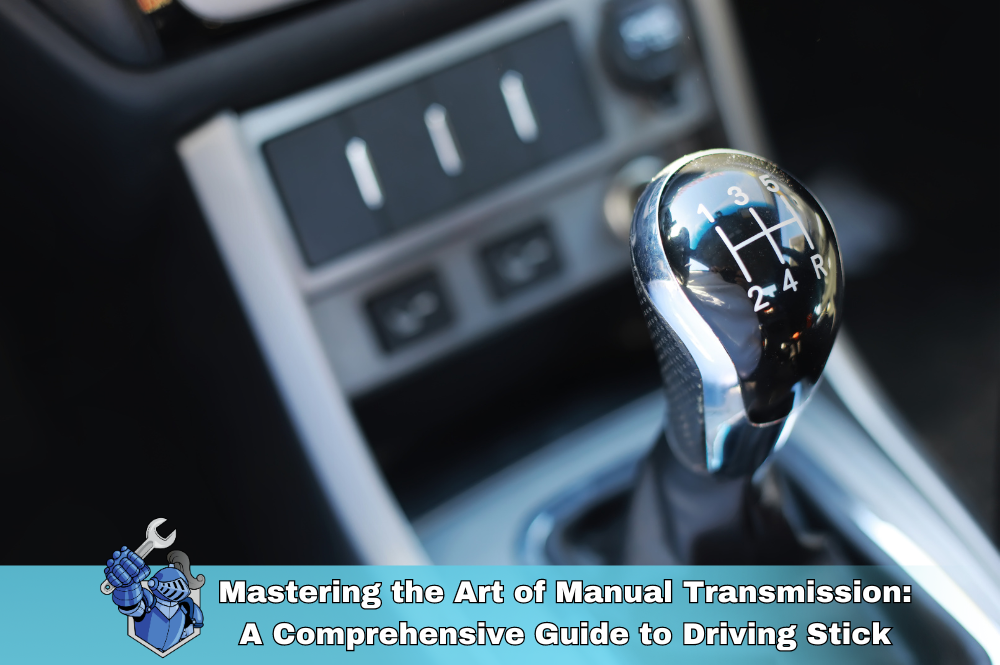 Mastering the Art of Manual Transmission: A Comprehensive Guide to Driving Stick
Mastering the Art of Manual Transmission: A Comprehensive Guide to Driving Stick Famous Actors Who Have a Need for Speed: Hollywood's Race Car Drivers
Famous Actors Who Have a Need for Speed: Hollywood's Race Car Drivers The Ultimate Guide to Motor Oil: Types, Benefits, and How to Change It
The Ultimate Guide to Motor Oil: Types, Benefits, and How to Change It Top Reasons Your Car Radiator Might Fail and How to Prevent Costly Repairs
Top Reasons Your Car Radiator Might Fail and How to Prevent Costly Repairs Honda Maintenance 101: Budgeting for Unexpected Repairs & Routine Service
Honda Maintenance 101: Budgeting for Unexpected Repairs & Routine Service Understanding Car Starters: Common Issues, Repair Costs, and How to Protect Your Vehicle
Understanding Car Starters: Common Issues, Repair Costs, and How to Protect Your Vehicle Why You Should Consider an Extended Warranty for Your Genesis
Why You Should Consider an Extended Warranty for Your Genesis Understanding and Protecting Electric Vehicle Batteries: A Comprehensive Guide
Understanding and Protecting Electric Vehicle Batteries: A Comprehensive Guide Top 10 Dashboard Warning Lights Every Driver Should Know
Top 10 Dashboard Warning Lights Every Driver Should Know Keep Your Engine Cool: The Must Have Guide to Car and Truck Water Pumps
Keep Your Engine Cool: The Must Have Guide to Car and Truck Water Pumps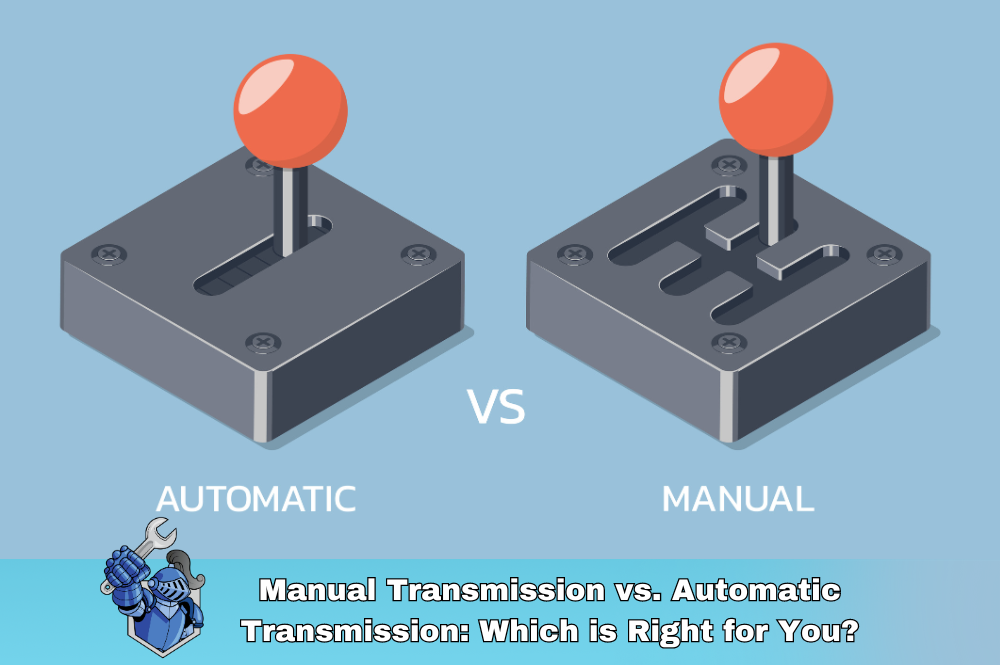 Manual Transmission vs. Automatic Transmission: Which is Right for You?
Manual Transmission vs. Automatic Transmission: Which is Right for You? 4-Wheel Drive 4WD vs All-Wheel Drive AWD: What’s the Difference and Which Is Right for You?
4-Wheel Drive 4WD vs All-Wheel Drive AWD: What’s the Difference and Which Is Right for You? Toyota FJ Cruiser: A Comprehensive Review
Toyota FJ Cruiser: A Comprehensive Review The True Cost of Maintaining a Toyota: Is It Really as Affordable as You Think?
The True Cost of Maintaining a Toyota: Is It Really as Affordable as You Think? How Much Does a Car Warranty Cost? A Comprehensive Guide
How Much Does a Car Warranty Cost? A Comprehensive Guide Understanding Kia's Factory Coverage and the Value of an Extended Warranty
Understanding Kia's Factory Coverage and the Value of an Extended Warranty The Pros of an Extended Warranty: Why It’s Worth the Investment
The Pros of an Extended Warranty: Why It’s Worth the Investment The Importance of Choosing the Right Fuel for Your Vehicle: Why It Matters and How It Affects Your Auto Warranty
The Importance of Choosing the Right Fuel for Your Vehicle: Why It Matters and How It Affects Your Auto Warranty Supporting Meals on Wheels NobleQuote's Commitment to Community Well-being
Supporting Meals on Wheels NobleQuote's Commitment to Community Well-being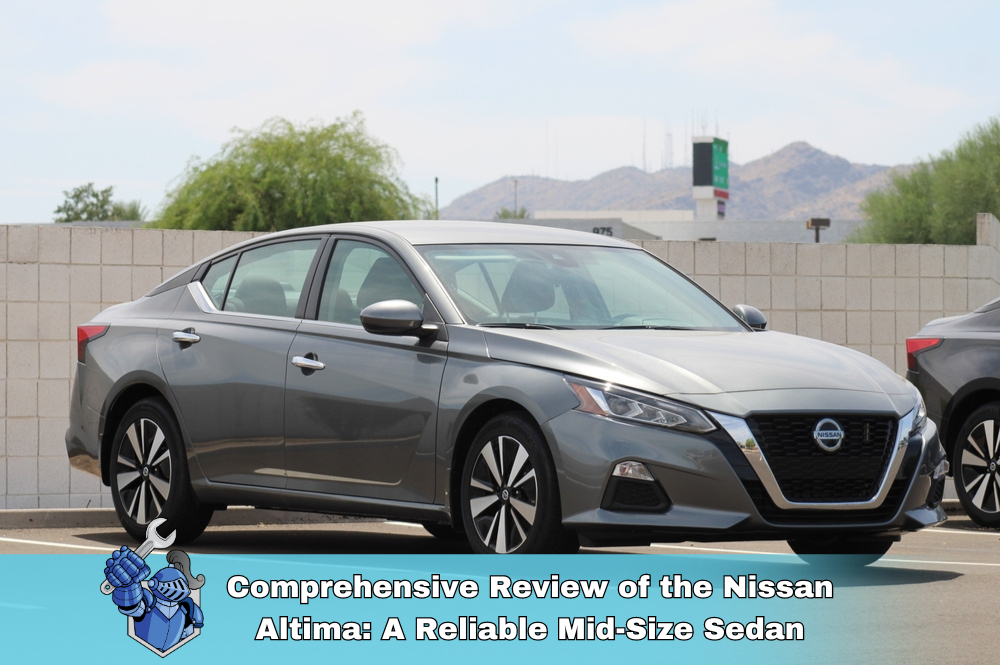 Comprehensive Review of the Nissan Altima: A Reliable Mid-Size Sedan
Comprehensive Review of the Nissan Altima: A Reliable Mid-Size Sedan The Ultimate Guide to Car Tires: Everything You Need to Know
The Ultimate Guide to Car Tires: Everything You Need to Know Benefits of Hybrid Vehicles: Are They Worth It
Benefits of Hybrid Vehicles: Are They Worth It Decoding Your Wallet: The Benefits of Using Cash and Credit Wisely
Decoding Your Wallet: The Benefits of Using Cash and Credit Wisely Kia Telluride Review: Unpacking the Features and the Real Cost to Own
Kia Telluride Review: Unpacking the Features and the Real Cost to Own NobleQuote: Best Auto Protection, Not Just the Oldest
NobleQuote: Best Auto Protection, Not Just the Oldest What is a Home Warranty and Do You Need One?
What is a Home Warranty and Do You Need One? Recession-Proof Your Ride: Why an Extended Car Warranty Makes Sense Now
Recession-Proof Your Ride: Why an Extended Car Warranty Makes Sense Now RV Road Trip Ready: Secure Your Adventures with Extended Warranty Coverage
RV Road Trip Ready: Secure Your Adventures with Extended Warranty Coverage Stop Paying for Potholes: The Smart Way to Protect Your Wheels and Tires
Stop Paying for Potholes: The Smart Way to Protect Your Wheels and Tires Don’t Get Stuck With Repair Bills: Ford Edge Warranty Coverage Explained
Don’t Get Stuck With Repair Bills: Ford Edge Warranty Coverage Explained Navigating the Online Vehicle Marketplace: Your Comprehensive Guide to Finding the Perfect Car or Truck
Navigating the Online Vehicle Marketplace: Your Comprehensive Guide to Finding the Perfect Car or Truck Maximize Your Savings: Understanding Your Vehicle Service Contract Deductible Options
Maximize Your Savings: Understanding Your Vehicle Service Contract Deductible Options Vehicle Service Contracts for SUVs and Trucks: Protecting Your Investment
Vehicle Service Contracts for SUVs and Trucks: Protecting Your Investment What Happens to My Vehicle Service Contract If I Sell My Car?
What Happens to My Vehicle Service Contract If I Sell My Car? What to Do If Your Vehicle Service Contract Claim Is Denied
What to Do If Your Vehicle Service Contract Claim Is Denied Extended Car Warranty with Active Factory Coverage: Smart Move or Waste of Money?
Extended Car Warranty with Active Factory Coverage: Smart Move or Waste of Money? Nissan Pathfinder Common Problems: A Complete Repair Guide
Nissan Pathfinder Common Problems: A Complete Repair Guide DIY Oil Change: Do It Better Than the Pros (and Save Money!)
DIY Oil Change: Do It Better Than the Pros (and Save Money!) Protecting Your Ride Like Jalen Protects the Pocket: Cars, Eagles, and Smart Investments
Protecting Your Ride Like Jalen Protects the Pocket: Cars, Eagles, and Smart Investments Rivian R1S Review: Is This the Ultimate Electric Adventure SUV? (2025)
Rivian R1S Review: Is This the Ultimate Electric Adventure SUV? (2025) Beyond Coverage: How Extended Warranties Can Expedite Your Car Repairs Amid Supply Chain Challenges
Beyond Coverage: How Extended Warranties Can Expedite Your Car Repairs Amid Supply Chain Challenges Keeping vs. Selling: Weighing Your Car Options & the Value of an Extended Car Warranty
Keeping vs. Selling: Weighing Your Car Options & the Value of an Extended Car Warranty The Truck Owner’s Peace of Mind: Why Noble Quote Leads the Pack in Truck Repair Protection
The Truck Owner’s Peace of Mind: Why Noble Quote Leads the Pack in Truck Repair Protection Noble Quote: Driving with Confidence, Protected from Unexpected Repairs
Noble Quote: Driving with Confidence, Protected from Unexpected Repairs Porsche GT3: Beyond the Numbers – The Soul-Stirring GT3 Experience
Porsche GT3: Beyond the Numbers – The Soul-Stirring GT3 Experience Ferrari vs. Lamborghini: A History of Innovation and Rivalry
Ferrari vs. Lamborghini: A History of Innovation and Rivalry Kansas City Chiefs Players: You Won’t Believe What They’re Driving!
Kansas City Chiefs Players: You Won’t Believe What They’re Driving! Dodge TRX: King of the Off-Road
Dodge TRX: King of the Off-Road Ford Raptor Extended Warranty Guide: Conquer the Road with Confidence
Ford Raptor Extended Warranty Guide: Conquer the Road with Confidence Subaru Extended Warranty: Your Ultimate Guide
Subaru Extended Warranty: Your Ultimate Guide Protect Your Car & the Planet: Introducing NobleQuote's Green Choice Program
Protect Your Car & the Planet: Introducing NobleQuote's Green Choice Program Mazda Extended Warranty: Your Comprehensive Guide
Mazda Extended Warranty: Your Comprehensive Guide Chevy Malibu Ownership: Staying Ahead of the Repair Curve
Chevy Malibu Ownership: Staying Ahead of the Repair Curve The Most Common Car Breakdowns of 2025 (And How to Avoid Them)
The Most Common Car Breakdowns of 2025 (And How to Avoid Them) Supercar Dreams on a Budget: The Most Affordable Exotics for First-Time Buyers
Supercar Dreams on a Budget: The Most Affordable Exotics for First-Time Buyers Porsche Cayenne Engine Problems: What to Watch For
Porsche Cayenne Engine Problems: What to Watch For The Future of Racing: Electric Cars, Autonomous Vehicles, and Beyond
The Future of Racing: Electric Cars, Autonomous Vehicles, and Beyond We've Moved! Noble Quote's New Home at the Lake of the Ozarks
We've Moved! Noble Quote's New Home at the Lake of the Ozarks Warranty Myths Busted: Don't Fall for These Common Misconceptions
Warranty Myths Busted: Don't Fall for These Common Misconceptions The "New Car Smell" Doesn't Last Forever: Protecting Your Investment Long-Term
The "New Car Smell" Doesn't Last Forever: Protecting Your Investment Long-Term Forza: The Perfect Blend of Simulation and Arcade Fun
Forza: The Perfect Blend of Simulation and Arcade Fun If NASCAR Had Car Warranties: The Pit Stop Chaos You’d See
If NASCAR Had Car Warranties: The Pit Stop Chaos You’d See 5 Car Problems That’ll Make You Wish You Had an Extended Warranty
5 Car Problems That’ll Make You Wish You Had an Extended Warranty
